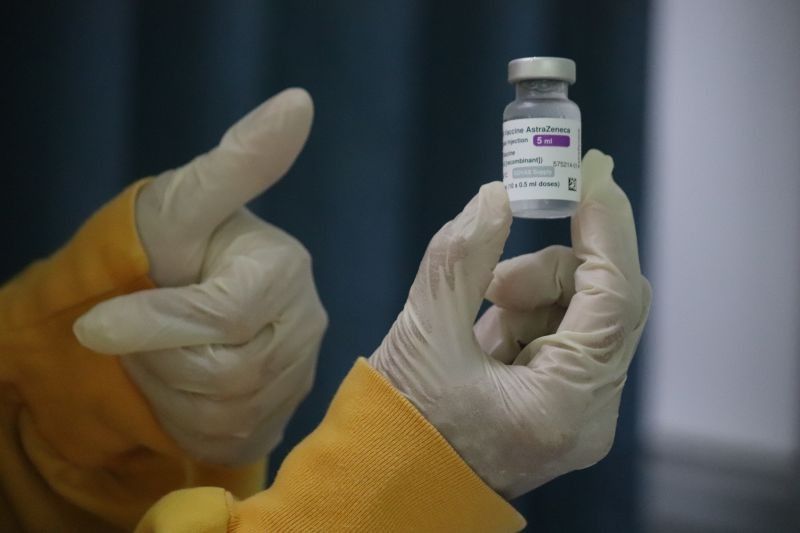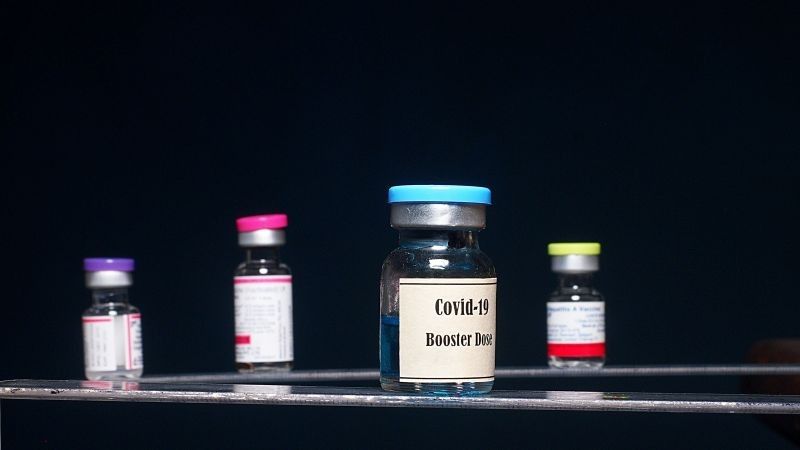Omicron and COVID-19 vaccine boosters: Everything you need to know

The omicron variant of COVID is now spreading rapidly. Early reports suggest omicron causes less severe disease than other variants but it still poses a risk to the most vulnerable, with patients starting to arrive in hospitals.
Omicron also appears to have some ability to get around existing immunity, whether from vaccination or infection. However, it seems less able to do this when people are boosted with a third vaccine dose.
Because of this, booster programmes are being accelerated. Here’s which vaccines are being used and what effect boosters are likely to have.
Which vaccines are used as boosters?
Unless there are strong reasons not to use them (such as having had a severe allergic reaction or other side-effect previously), Pfizer or Moderna are the preferred options.
These are the mRNA vaccines, which appear to be more effective as a booster dose compared to other COVID vaccines, such as AstraZeneca. The recent Cov-Boost study, which investigated which vaccine type performed best when given as a third dose, found the mRNA vaccines gave the highest uplift in antibodies.Following up the AstraZeneca vaccine with an mRNA dose enhances protection. Marc Bruxelle/Shutterstock
And if your first two vaccines don’t end up being the same as your booster, this is OK. Various studies (some awaiting review) have found that mixing doses is safe and leads to a strong immune response – even if you initially had the AstraZeneca vaccine.
How much protection will I get?
Even before the arrival of omicron, it was becoming clear that boosters were needed – data was showing vaccine protection declining after 90 days.
Indeed, a preprint (a piece of research still to be reviewed) suggests that 20 weeks after their second jab, people over 65 were only 37% protected against symptomatic COVID if they had been given the AstraZeneca vaccine. If they had been given Pfizer, this figure was 55% (though the corresponding estimates for protection against hospitalisation were 76% and 91% respectively).
There’s little hard data yet on omicron, but protection is likely to be lower still because of its mutations. Another preprint has tested antibodies in the blood of vaccinated people against the variant and found that they’re much less able to neutralise the virus.

Early real-world data produced by the UK’s Health Security Agency seems to confirm that protection is lower. It suggests that vaccine effectiveness against omicron more than 25 weeks after a second vaccine dose was negligible for AstraZeneca and only about 35% with Pfizer. But after a booster, effectiveness was around 75%.
This is against symptomatic disease. The risk of severe disease after an omicron infection is still not known, and neither is the effectiveness of a booster dose against severe disease.
However, given that vaccines and boosters have shown greater effectiveness against severe disease than against infection with other variants, we should expect protection against severe illness to be much greater than 75%.
Also, while omicron is heavily mutated, it doesn’t have so many mutations in areas targeted by specific immune cells called cytotoxic T cells, which are thought to be important in reducing disease severity. This is another reason why it’s not unrealistic to expect much greater protection against severe disease. But it will be a while before this is confirmed.
Once boosted, am I free to enjoy Christmas?
After you’ve had the booster, it takes a few days before the additional protection kicks in. A study in Israel found that protection starts to appear about seven days after the booster shot and then continues to increase for another week.
So after your booster, you shouldn’t assume you have any increased protection for at least another week to ten days. You can still enjoy Christmas, but continue to be cautious – especially if you are, or have contact with, a vulnerable person.
--
Paul Hunter is a Professor of Medicine at the University of East Anglia. The original version of this article was first published on The Conversation and republished here under a Creative Commons license.



















